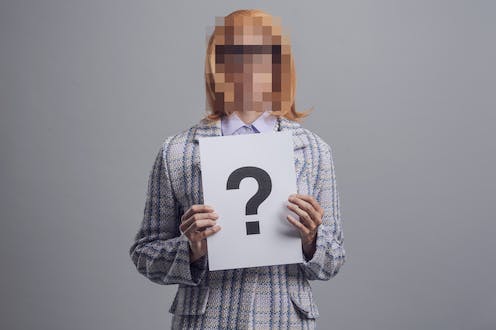
Imagine what life would be like if you couldn’t recognise your own family and friends unless they told you who they were. Now imagine no one will believe you and that even your doctor dismisses you, saying everyone forgets names sometimes.
Two recent studies show this is a common experience for people with a brain disorder called “developmental prosopagnosia” – or as it is more informally known, faceblindness. This type of prosopagnosia is lifelong, in contrast to “acquired prosopagnosia” which can develop after a brain injury. Sufferers struggle to recognise people who they know well and, in extreme cases, close family members and even photographs of themselves.
No one is sure why people develop this condition but it can run in families, suggesting it might have a genetic basis. It is estimated to afflict 2-3% of the adult population.
One of the studies, published in December 2022, comes from my lab at Edge Hill University. Our results suggested that up to 85% of people with faceblindness would not get diagnosed if they tried traditional approaches. For example, if participants complained to their doctor that they were failing to recognise friends and family members, they were often told their face recognition skills were normal. This can have a terrible impact upon people, leaving them confused, frustrated and upset.
Researchers at Harvard University published a paper in February 2023 that came to the same conclusion: many people with faceblindness won’t get a diagnosis from their clinician using current medical assessments. The current procedure requires people to score worse than 97.5% of the general public on both of two computer-based tests.
Drawing a blank
The first of these tasks is a “famous faces” test, where patients have to identify celebrities from their photographs (for example, Brad Pitt or Bill Clinton). In the second task, patients are asked to memorise a series of unfamiliar faces, then pick them out from a larger group – similar to how you would identify a criminal suspect in a police line-up.
This is the most common approach used by clinicians and researchers across Europe, North America and Australasia. However, the Harvard research and that by my own lab found that many prosopagnosia cases would not meet the criteria currently required for a diagnosis.
Our study tested 61 people who reported daily difficulties recognising faces. Assessments were carried out online due to COVID-19 restrictions, and we found that 85% of participants would not have met the diagnosis threshold on the computer tests. The Harvard study suggested that roughly 60-70% of people who struggle to recollect faces may be denied a diagnosis.

Amir Kaljikovic/Shutterstock
Why do people with prosopagnosia perform too well on medical tests to get a diagnosis? One reason may be because of day-to-day changes in their ability to focus – for example, did they have a coffee this morning, or a good night’s sleep? Previous research has shown prosopagnosics’ scores on face tests change from one testing session to the next.
Computer-based tests may also be missing something about how we recognise faces in person. In the real world, we see faces in three dimensions, and they are moving as someone walks towards us and speaks. The current tests only use still images in two dimensions.
A different result
So, how should we diagnose prosopagnosia instead? While the Harvard group and I agree that we need to be much more understanding towards people who believe they have the condition, we differ in our views on how this should be accomplished.
The Harvard lab proposes we should diagnose people with prosopagnosia if they score in the bottom 16% of the general population on the two face recognition tests. One problem with this approach is that it will still block many people who report trouble with faces from getting help.
I would argue we should be guided by the patient’s symptoms when deciding a diagnosis. Symptoms can be assessed by asking people how strongly they agree with statements like “I often mistake people I have met before for strangers”. These are taken from a questionnaire called the prosopagnosia index, first developed by a British research group in 2015.
This approach is used for other psychological conditions such as depression and post-traumatic stress disorder. Only with this method can we understand the range of the prosopagnosia spectrum, and avoid unnecessary suffering that comes with a lack of diagnosis.
The prosopagnosia index only takes a couple of minutes to administer, while computer based tests can take up to an hour. Diagnosing people more rapidly gives doctors more time to discuss options with their patients, such as computer training with faces and coping mechanisms. The latter includes telling friends and colleagues about your condition, and requesting they introduce themselves each time you meet.
Research in this area is ongoing so if you, or someone you know, thinks they might have prosopagnosia (either acquired or developmental) and would like to be tested, or you have failed to get a diagnosis in the past from a clinician, please consider taking part.
For those who might still be sceptical, I should add: faceblindness is a real disorder. People with this condition have atypical neural responses when they view faces. This suggests their brains are not functioning as they should be when they visualise faces.
If you happen to meet someone with faceblindness – and the chances are very high, given that one in 30 may have the condition – please be understanding. Give them cues as to who you are and where you met them. A little patience can make all the difference.
![]()
Edwin Burns does not work for, consult, own shares in or receive funding from any company or organisation that would benefit from this article, and has disclosed no relevant affiliations beyond their academic appointment.
























